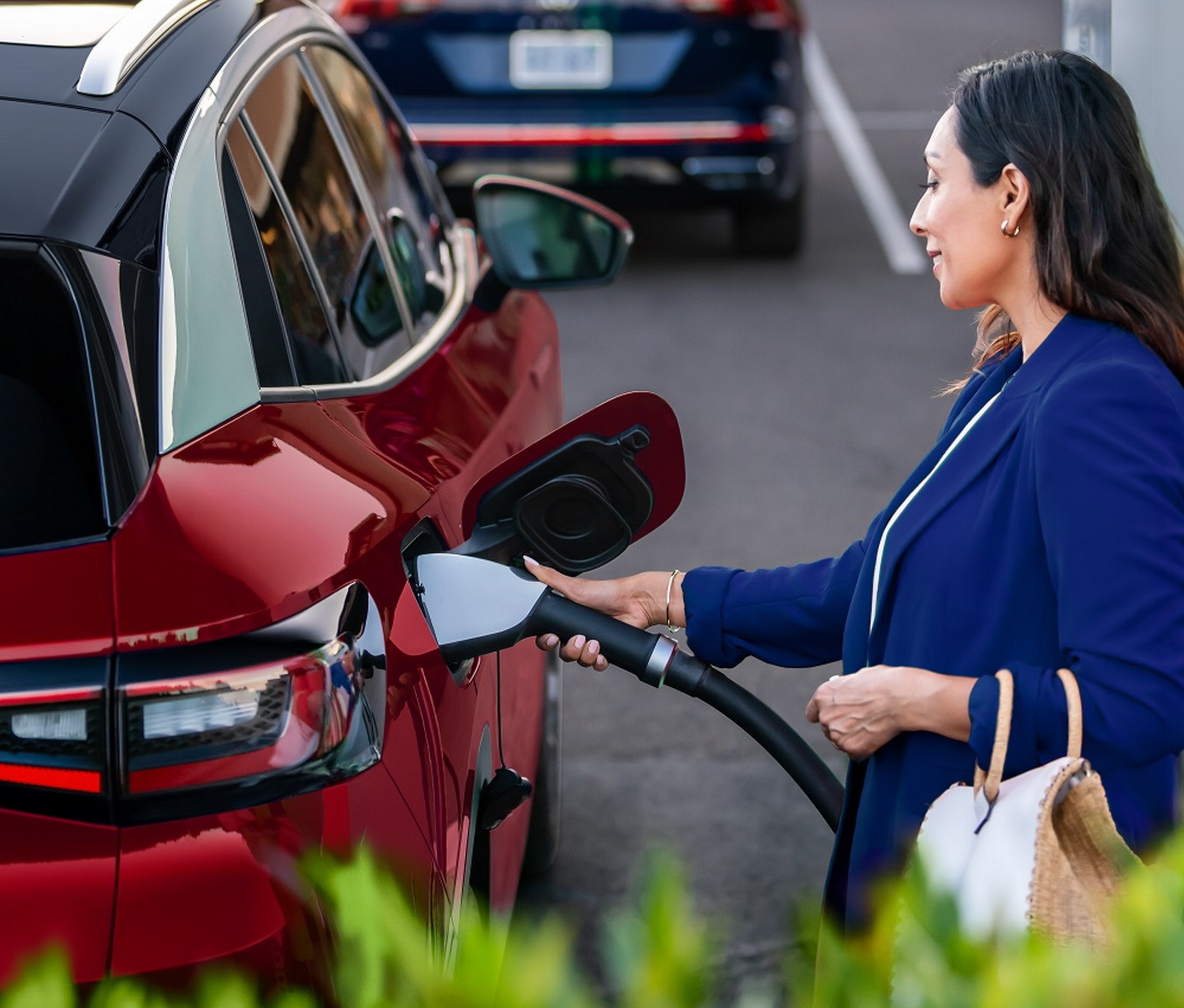Auto Dealers Double Down On Resistance To EV Mandates

Table of Contents
Financial Concerns and Infrastructure Challenges
One of the primary reasons behind auto dealer resistance to EV mandates is the substantial financial investment required to support the transition. The high initial cost of establishing the necessary infrastructure presents a significant challenge. This includes investing in charging stations, specialized tools for EV maintenance and repair, and the training of service technicians to handle the unique aspects of electric vehicle technology. Furthermore, profit margins on EVs are currently often lower than those on gasoline-powered vehicles, creating concern about the overall impact on dealer profitability.
- High upfront costs of EV-specific training for staff: Training mechanics to work on high-voltage systems and specialized components requires significant investment in time and resources.
- Limited consumer understanding and demand in certain regions: In areas with lower EV adoption rates, dealers face the risk of investing heavily in infrastructure with limited returns.
- Concerns about the long-term viability of the EV market: Uncertainty surrounding future government policies and the evolution of EV technology adds to the financial risk.
- Lack of government support for infrastructure development in rural areas: The uneven distribution of charging stations and related infrastructure creates further challenges for dealers in less populated regions. This disparity directly impacts the feasibility of EV sales and maintenance in these areas, thus contributing to the resistance to EV mandates.
Lack of Consumer Demand and Education
Many auto dealers argue that the current consumer demand for EVs doesn't justify the substantial investments needed to adapt their businesses. While EV sales are growing, they still represent a relatively small portion of the overall automotive market. This perception is further fueled by a lack of consumer understanding surrounding electric vehicles. Range anxiety, charging times, and misconceptions about performance and maintenance remain significant barriers to widespread adoption.
- Misconceptions about EV performance and charging infrastructure: Many consumers still harbor inaccurate beliefs about EV range, charging speed, and the availability of charging stations.
- Reluctance of consumers to switch from familiar gasoline vehicles: The comfort and familiarity associated with gasoline-powered cars hinder the transition to EVs for many consumers.
- Need for government-led public awareness campaigns to promote EV adoption: Targeted campaigns are needed to address consumer concerns and educate the public on the benefits of electric vehicles. This educational aspect is crucial in overcoming the resistance to EVs from both consumers and, subsequently, dealers.
Concerns About Government Regulations and Compliance
Navigating the complex landscape of government regulations related to EV sales and emissions standards presents a major hurdle for auto dealers. The ever-changing regulatory environment creates uncertainty and increases the risk of penalties for non-compliance. Meeting various federal and state regulations can be a significant administrative burden, adding to the overall cost and complexity of doing business.
- Uncertainty about future regulations and policy changes: The constantly evolving regulatory landscape makes long-term planning and investment decisions challenging for dealers.
- Burden of compliance with multiple federal and state regulations: Dealers must navigate a complex web of regulations, often varying from state to state, increasing compliance costs and administrative complexities.
- Fear of potential legal repercussions for failing to meet quotas: The pressure to meet government-mandated EV sales quotas creates significant financial and legal risks for non-compliant dealers.
The Role of Established Automotive Manufacturers
The strategies employed by established automakers significantly influence dealer behavior and resistance to EV mandates. Manufacturers play a crucial role in providing the necessary support and resources for dealers to successfully transition to selling and servicing electric vehicles. However, a lack of sufficient support from manufacturers, conflicting manufacturer targets and dealer realities, and the impact of manufacturer pricing strategies on dealer profitability often exacerbate the challenges faced by dealers in adapting to the EV market.
- Lack of sufficient support and resources from manufacturers: Insufficient financial incentives, inadequate training programs, and limited marketing support from manufacturers hinder dealer adoption of EVs.
- Conflict between manufacturer targets and dealer realities: Aggressive sales targets imposed by manufacturers may not align with the realities of the local market, especially in areas with lower EV demand.
- Impact of manufacturer pricing strategies on dealer profitability: Unfavorable pricing models can significantly impact dealer margins and profitability, discouraging their investment in EVs.
The Future of Auto Dealers and EV Adoption
The resistance of auto dealers to EV mandates stems from a confluence of financial, infrastructural, educational, and regulatory challenges. Addressing these concerns is crucial for the successful transition to widespread electric vehicle adoption. Finding common ground requires a collaborative approach, incorporating government incentives, improved consumer education programs, and stronger support from manufacturers. This includes creating more robust charging infrastructure, particularly in rural areas, and providing dealers with the financial resources and training to adapt to the changing market.
The future of the automotive industry depends on finding common ground. Let's continue the conversation about how to overcome the resistance to EV mandates and accelerate the adoption of sustainable transportation. Join the discussion and help shape the future of electric vehicle adoption!

Featured Posts
-
 China Secures Us Deal The Role Of Xis Experienced Advisors
May 16, 2025
China Secures Us Deal The Role Of Xis Experienced Advisors
May 16, 2025 -
 Goles Y Resumen Del Partido Belgica 0 1 Portugal
May 16, 2025
Goles Y Resumen Del Partido Belgica 0 1 Portugal
May 16, 2025 -
 Belgica 0 1 Portugal Resumen Completo Del Partido Y Goles Marcados
May 16, 2025
Belgica 0 1 Portugal Resumen Completo Del Partido Y Goles Marcados
May 16, 2025 -
 Who Blinked First Resolving The Us China Trade Standoff
May 16, 2025
Who Blinked First Resolving The Us China Trade Standoff
May 16, 2025 -
 Dealerships Renew Fight Against Ev Sales Requirements
May 16, 2025
Dealerships Renew Fight Against Ev Sales Requirements
May 16, 2025
Latest Posts
-
 Mora Scores But Timbers Outmatched In 4 1 Loss To Earthquakes
May 16, 2025
Mora Scores But Timbers Outmatched In 4 1 Loss To Earthquakes
May 16, 2025 -
 Earthquakes Dominant 4 1 Victory Over Portland Timbers
May 16, 2025
Earthquakes Dominant 4 1 Victory Over Portland Timbers
May 16, 2025 -
 Everything You Need To Know Seattle Sounders San Jose Earthquakes
May 16, 2025
Everything You Need To Know Seattle Sounders San Jose Earthquakes
May 16, 2025 -
 S Jv Sea Match Preview What To Expect When The Sounders Visit San Jose
May 16, 2025
S Jv Sea Match Preview What To Expect When The Sounders Visit San Jose
May 16, 2025 -
 Pre Game Analysis San Jose Earthquakes Opposition Scouting Report
May 16, 2025
Pre Game Analysis San Jose Earthquakes Opposition Scouting Report
May 16, 2025
